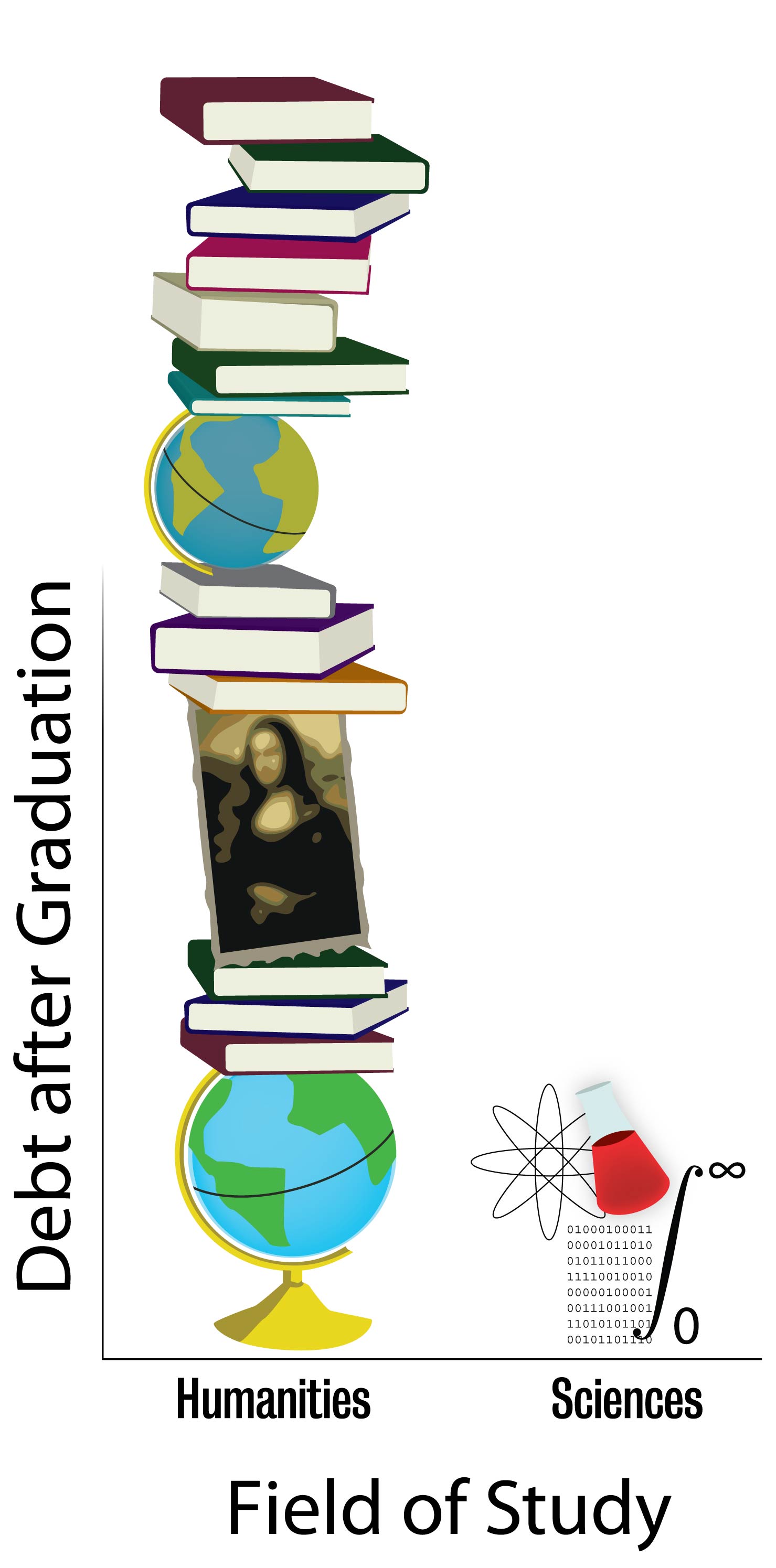Everyone always notices when the insignificant details slip away ““ a lost quarter, a missed call, a neglected Facebook post ““ but the greatest risk, never being able to think critically, can pass off absolutely unnoticed.
But this is nothing less than the current state of recent college graduate job trends: When job qualification is based primarily on quantitative skills, humanities students are going to be at an obvious disadvantage.
A rigorous education in almost any of the core humanities infuses in a student unprecedented and necessary skills, such as writing and research, communication, and the adroitness to weave through convoluted enigmas that have no single, obvious, or clear answer. The latter, of course, we can call critical thinking, or thinking that is “outside the box”; this is the skill that is in danger of being lost in favor of engineering, business economics/economics, science, and the computer science majors.
With the cost of tuition rising faster even than the obesity rate in this country, humanities students are being placed in a situation where they are likely to be treading through a sea of debt, without the necessary skills to ever even begin that swim to the dry lands of financial freedom.
A recent fall survey by the National Association of Colleges and Employers indicates that six out of the 10 best-paying jobs for college graduates are engineering jobs, three are computer science related and the last one is based on information science and technology. And this isn’t such a radical change from the winter survey by the same association, which had the most coveted jobs placed primarily in the economic and accounting fields.
It’s unlikely you are going to see journalism, the arts, or think tank related jobs atop any of these lists any time soon. This not only decreases the job opportunities for humanities students, but as tuition keeps increasing and humanities job opportunities keep decreasing, fewer and fewer students are going to study the humanities, or at least study the humanities and become employed upon culmination.
As a humanities major, it is a foreboding thing to be sitting on a mountain of debt $40,000 high after you graduate with a much-coveted philosophy degree, yet struggling to find work.
There is no doubt: The top-paying jobs do not go to humanities students. And even UCLA falls victim to this unfortunate trend. A quick tour through the list of UCLA’s next career fair participants shows that most companies attending are going to be recruiting students from majors based in science and math.
So why does it matter that with the rising cost of tuition and the best paying jobs in the country being starkly delineated toward these majors, humanities students just can’t compete?
Humanities students still have a lot to offer, not only to the work force, but to society as a whole. In a world where ideology is the false and phantasmic boundary people propagate that guides thought, the need to question social constructs rests on the individual. Critical thought is the essential means of this questioning.
Critical thinking imparts on the individual this ability to question social constructs as opposed to blindly following the accepted methodology.
The current job trend ultimately gives birth to an increasing number of college graduates who can think quantitatively, but not critically. A rigorous quantitative education teaches students to delve through seemingly complex problems with a seemingly clear answer. Students can manipulate and reason through problems with a sharply established methodology ““ they can think inside the box.
While more theoretical science does allow the flexibility of critical thought to pervade its fundamental approach, even now, the job potential for these majors without a higher degree is shrinking.
Step-by-step instruction and following a clear approach with a clear answer is absolutely important ““ people need bridges, hedge funds, and even credit default swaps. Without a doubt, these things are the crux of our economy.
But as our economy is perhaps bumbling towards its second dip into dreaded recession, we should be asking ourselves a different question: Could it be that we need more of a fundamental investment in the college majors that teach not simply quantitative thinking, but also critical thinking?
Email Dafter at mdafter@media.ucla.edu. Send general comments to opinion@media.ucla.edu.
